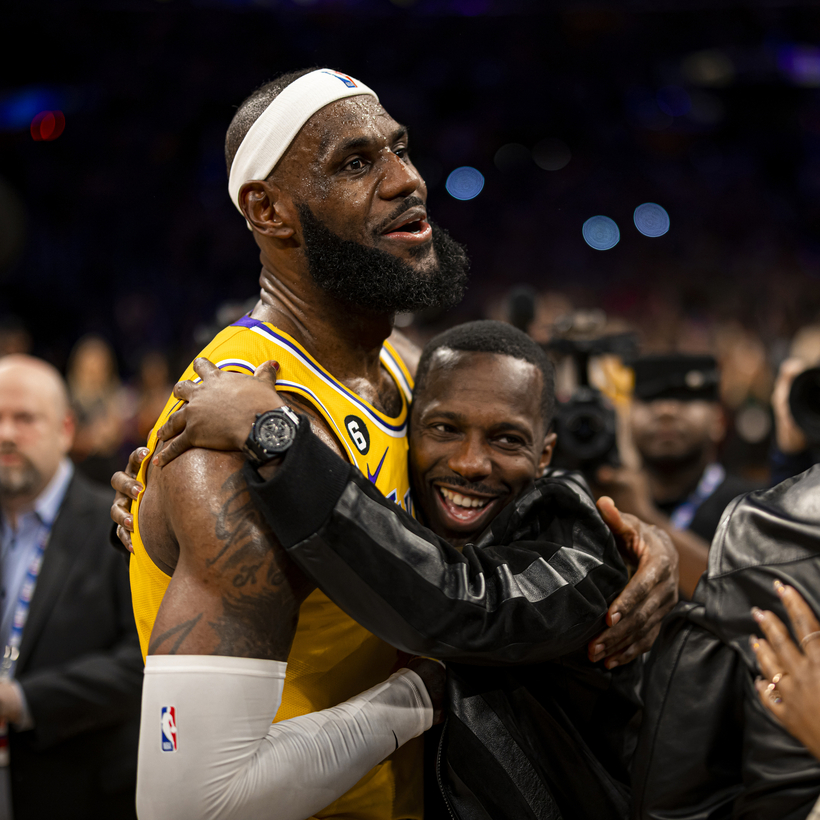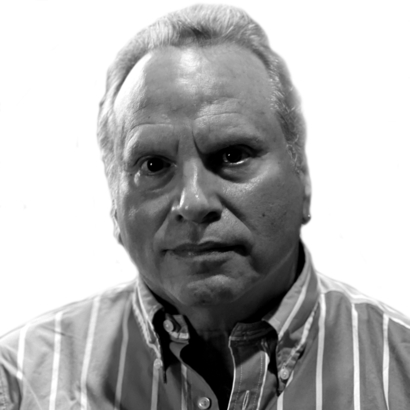Before I started reading Rich Paul’s memoir, I knew just a smidgen about him. I knew he was a successful sports agent. I knew from reading clips he had a tendency to piss people off.
I knew he had developed a close personal and professional relationship with LeBron James on the basis of a chance meeting in 2002, when James was 17 and on the cusp of turning pro. (Paul was the ancient age of 21.) And I assumed, like many, that James was responsible for his success, the ultimate business card—in other words, luck. Just as you didn’t fuck around with James on the basketball court, you didn’t fuck around with his close friends.
Now that I have read his engaging and sometimes hair-raising coming-of-age memoir, entitled Lucky Me, I realize luck has had nothing to do with anything in the life of Rich Paul—one of the most powerful sports agents in the country today at the age of 41, with a supposed net worth of $120 million and a girlfriend you might have heard of named Adele.
Mastering the Mean Streets
Paul grew up in the mean streets of Cleveland’s East Side—the particularly mean streets of St. Clair Avenue. “108th and 117th didn’t get along; 101st and 102nd would kill each other,” he writes. “Every street was its own nation. We navigated worlds within worlds.” You name it, Paul either witnessed it or lived through it—murders, self-destructive addictions, inconceivable poverty in the richest nation on earth, an entire generation of Black men and women left to barely survive until they no longer did. Paul saw too many friends die and his own mother grapple with an addiction to crack that led to her untimely death, at the age of 61.

What emerges in these pages is someone who at a very young age was observant, cautious, and impossible to read—by “putting up a wall around my feelings”—and who instead developed an uncanny ability to assess others.
He always worked the percentages, even in the game of dice he played as an 11-year-old that turned him into a neighborhood legend for almost always winning, practicing on a pillowcase to make the roll nice and soft, seeking out a spot in the dirt to enhance the chances of his number coming up. He had a savvy business sense, whether it was for selling drugs or being one of the first adopters of the throwaway sports jerseys that became a lucrative fashion rage, selling them out of the trunk of his car and making $10,000 to $15,000 a month at the peak.
It wasn’t luck that led him to James in 2002, when they ran into each other at an airport and Paul was wearing a Warren Moon throwback jersey that James admired.
Many moons ago I co-authored a book with James called Shooting Stars, about his growing up on the wrong side of Akron and the indelible friendships he developed with four other kids that ultimately made them invincible on the high-school basketball court. I caught only a glimpse of LeBron’s personality, but it was obvious that he trusted very few people, kept his inner circle the size of a Windsor knot, and saw instantly that there was something about Paul worth cultivating.

“Rich never asked for anything,” James writes in a foreword to the book. “He didn’t care whether I was a future pro or the kid across the street. He just knew I needed his help, and he gave me what I needed most—the space to be vulnerable.”
Paul worked for James before he started his own sports agency, called the Klutch Sports Group. The result has been phenomenal—roughly $4 billion in negotiated contracts.
He had a savvy business sense, whether it was for selling drugs or being one of the first adopters of the throwaway sports jerseys that became a lucrative fashion rage.
Lucky Me is a quick and breezy 242-page read. The writing is sharp and punchy and the chapters short to keep up the rhythm. In some ways the most interesting character is not Paul but his father, Rich Paul Sr. He ran R & J Confectionery, knew everyone, and was realistic about the streets—what sometimes had to happen to survive.
He taught his son to be responsible when Rich was still a kid, letting him man the cash register. He was loving. But he would not tolerate disrespect, such as the time Rich decided to flunk out of high school and was doing a good job of it despite obvious aptitude. His father got wind of it and, as they were riding in his Coupe de Ville, lifted up a .38-caliber pistol from underneath the armrest. “You keep disrespecting me, I’m gonna show you what disrespect gets you,” Rich senior told his son. “I’ll show you what disrespect is about.”
Rich junior got better grades after that.
“Rich never asked for anything,” writes LeBron James. “He didn’t care whether I was a future pro or the kid across the street.”
The list of horrors that Paul experienced in the St. Clair neighborhood is indeed a long litany, and no matter how harrowing, it feels at a certain point like something we have read before, the rising-up-out-of-the-streets genre. There are also lengthy discourses on Paul’s fashion sense. (He is an expert on ironing the perfect crease.) Once is interesting; twice is a little annoying; three times is enough to make you think the title of the book should just be Me.
The book covers only Paul’s growing up into manhood. There is little about how he negotiated mega-deals for such N.B.A. stars as James, Lonzo Ball, Anthony Davis, Draymond Green, and Trae Young, and for N.F.L. star Jalen Hurts. To see the inside of how he has done it—turning N.B.A. executives into soft pretzels, playing the game of patience that drives them batshit because he knows that the best way to get to “yes” is to say “no”—would have been fascinating and juicy. As for any dish on James, forget it.
Rich Paul was too smart and sharp not to succeed. As Lucky Me shows in great detail, he used the streets on his own terms, to grow and expand and learn. It was his first great negotiation, and as he has since found out time and time again, negotiation over money is a lot easier than negotiating over your life.

Lucky Me: A Memoir of Changing the Odds, by Rich Paul, is out now from Roc Lit 101
Buzz Bissinger is the author of Friday Night Lights and a co-author of Shooting Stars with LeBron James


